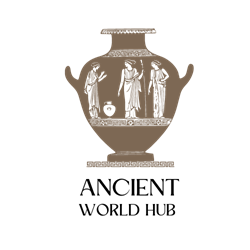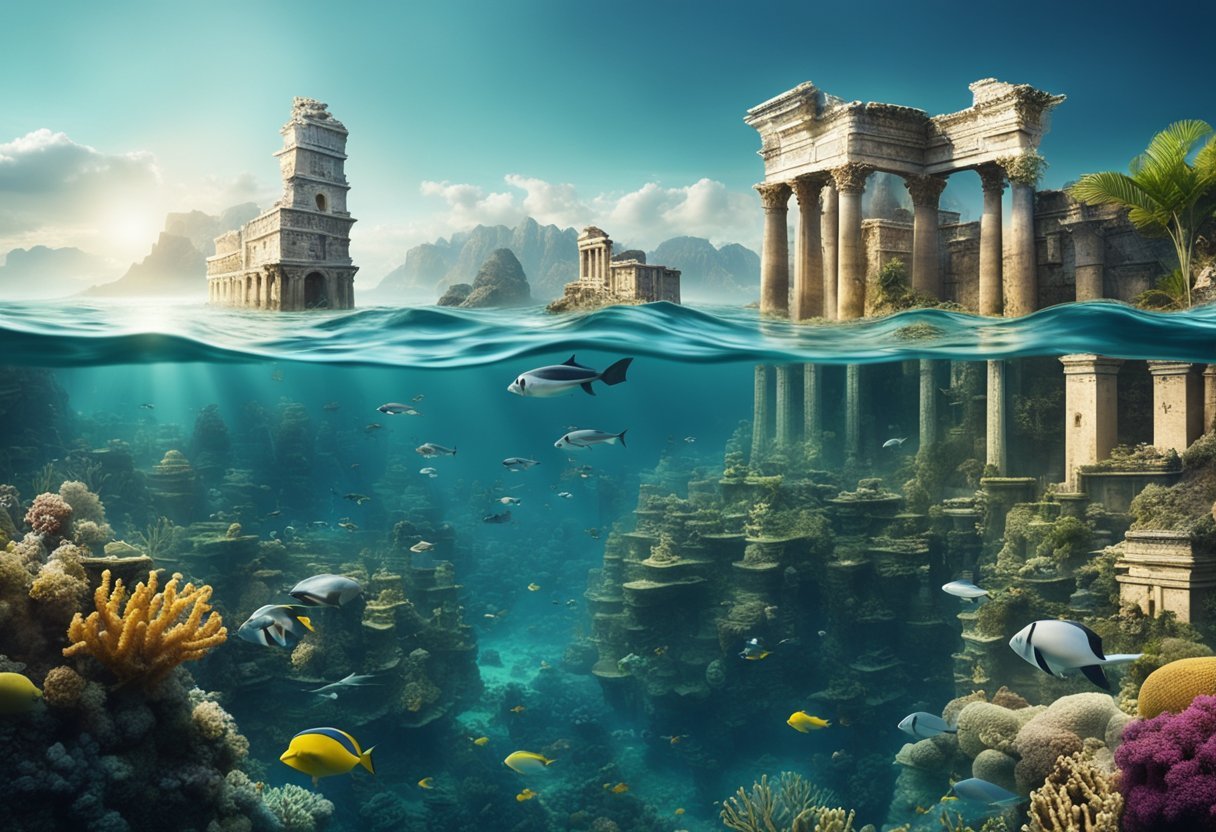The legend of Atlantis is one of the most compelling mysteries of the ancient world. Atlantis is a legendary island that supposedly existed beyond the Strait of Gibraltar and was described by the philosopher Plato in his works, “Timaeus” and “Critias.” According to Plato, Atlantis was a powerful and advanced civilization that, due to its arrogance, eventually sank into the ocean.
This story has captivated historians, adventurers, and enthusiasts for centuries. They have pondered whether there is any truth to Plato’s tale or if it was purely a philosophical allegory. Debates and theories continue to this day, with some claiming Atlantis was a real place that inspired myths across different cultures.
Exploring these theories and the historical context of Plato’s writings gives insight into why this legend endures. From ancient texts to modern expeditions, the discussion around Atlantis remains alive, blending fact with fiction in a quest to uncover the elusive truth.
The Origin of the Atlantis Legend

The legend of Atlantis primarily originates from Plato’s dialogues and finds possible inspiration in various ancient civilizations and events. This section uncovers these foundational elements.
Plato’s Dialogues
Plato is the principal source for the Atlantis story. His writings in the dialogues Timaeus and Critias describe an advanced civilization that existed around 9,000 years before his time.
In these texts, Egyptian priests relayed the tale of Atlantis to Solon, an Athenian lawgiver. Atlantis was described as a powerful and technologically advanced island larger than Asia Minor and Libya combined. Its people, initially noble, became corrupt, leading to their downfall by divine punishment through earthquakes and floods.
Possible Inspirations
The question of Atlantis’s basis in reality has inspired much debate. Some historians suggest it may have been inspired by real events, such as the eruption of Thera (modern-day Santorini) around 1600 BCE.
Others propose that Atlantis is a composite of various historical accounts of lost civilizations or natural disasters. The geography, culture, and fate of Atlantis could also mirror the ancient Minoan civilization, which experienced a sudden decline. Despite numerous theories, Atlantis remains rooted in a blend of myth and possibly loosely connected historical facts.
Atlantis in Popular Culture

Atlantis has inspired countless works across various media, from literature and films to video games and New Age beliefs.
Literature
In literature, Atlantis often serves as a symbol of lost civilizations and fallen grandeur. Plato’s dialogues, “Timaeus” and “Critias”, laid the groundwork. Science fiction and fantasy writers picked up the myth, with notable examples like Jules Verne in “Twenty Thousand Leagues Under the Sea” and Sir Thomas More in “Utopia”. More recently, authors like Graham Hancock have explored the myth in speculative historical contexts.
Films and Television
In films and TV, Atlantis captivates audiences with its mystery and advanced technology. Disney’s animated film “Atlantis: The Lost Empire” (2001) explores a young adventurer’s quest to find the lost city. Television series like “Stargate Atlantis” integrate the legend into their sci-fi narratives. Documentaries such as those from National Geographic also frequently explore the possible realities behind the myth.
Video Games
The legend of Atlantis finds a home in video games, offering immersive adventures. Titles like “Tomb Raider: Underworld” and “Assassin’s Creed Odyssey” integrate Atlantis into their storylines. Mystery-track games and strategy titles like “Age of Mythology” use the legend as a backdrop, allowing players to explore and interact with a supposed lost world.
New Age and Pseudoscience
New Age and pseudoscience enthusiasts often reference Atlantis, theorizing about its advanced civilization and spiritual significance. Authors like Edgar Cayce and David Icke propose speculative theories, connecting Atlantis to cosmic energies and alien technologies. These ideas, though controversial, captivate large audiences interested in the possibilities of forgotten knowledge and ancient wisdom.

